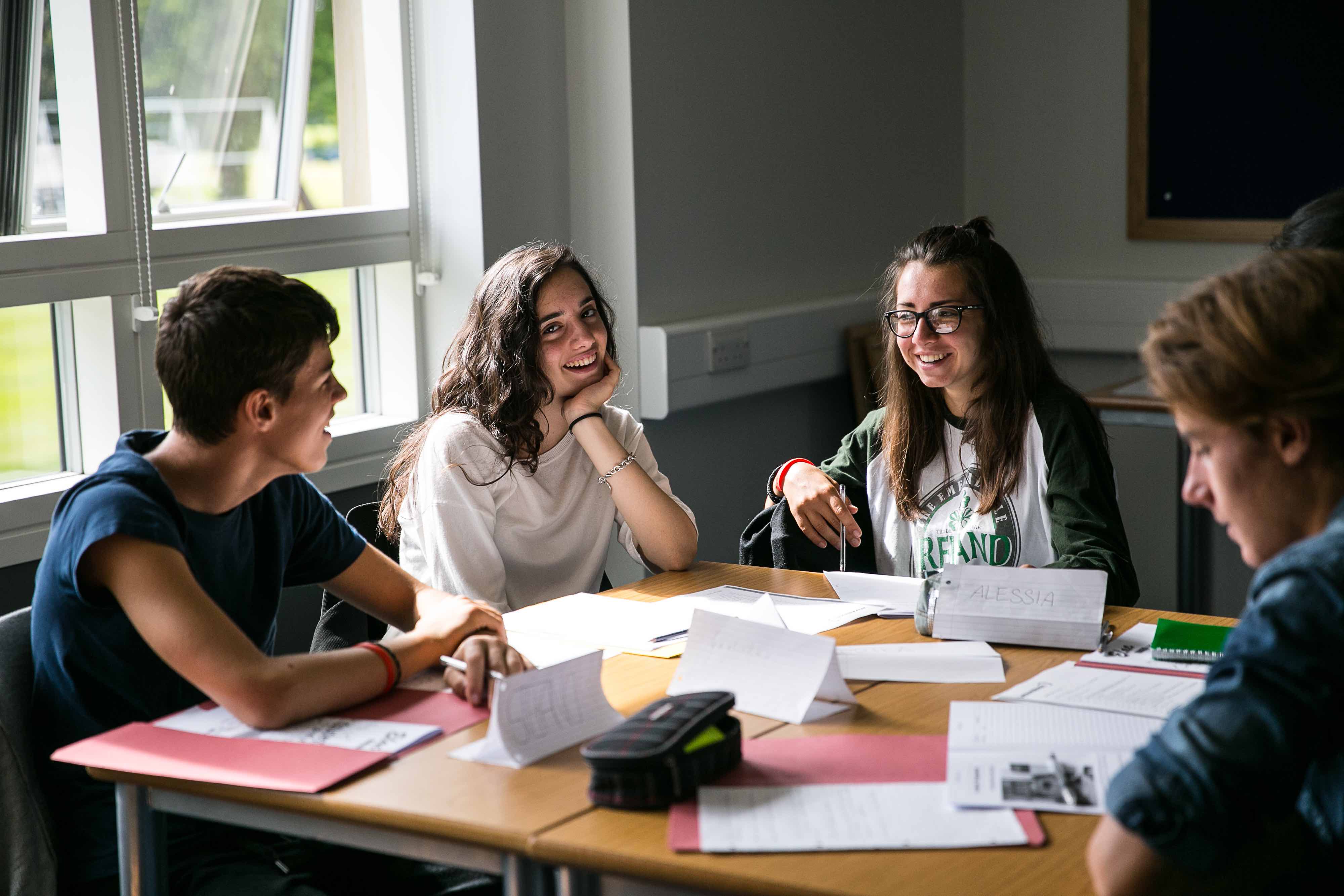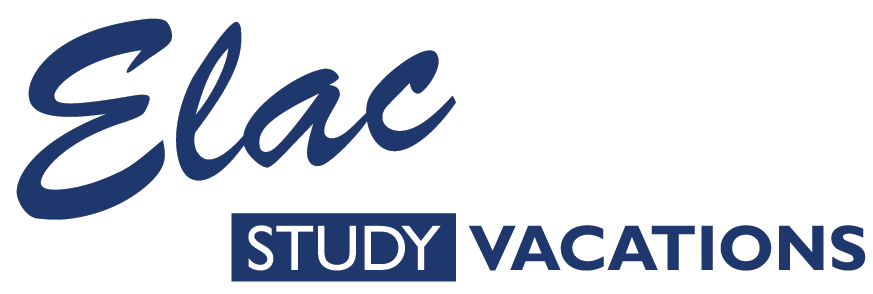OUR ACADEMIC PROGRAMMES
Our Summer Programmes
Students in our summer centres follow a ‘core curriculum’ which aims to develop their language skills, through a focus on communicative tasks, activities linked to the cultural visits, communication activities and drama. In addition, they will follow lessons on one of three different pathways.
Core Curriculum
The focus of our language work is on ‘activating’ the language students have already encountered, but which they are not yet comfortable using. There is an emphasis on listening and speaking skills.
Our communicative approach
Learners are taught in multilingual classes of 16 (maximum) students. All learners take a placement test on arrival, then are allocated to classes according to their written and spoken English level; students’ ages and nationalities are also considered.
All lessons are communicative primarily focussing on speaking fluency, pronunciation, and skills development.
A variety of classroom activities are used to help develop this fluency such as the use of functional skills, which learners can then immediately practise in the local community or with their hosts during their stay in the UK.
A variety of age-appropriate, published, and in-house materials are available for teachers to use to ensure students’ exact language needs and interests are met.
Learners are expected to work together in pairs and small groups to help build confidence when speaking but also to ensure they interact with learners from other countries, make friends and learn about their classmates’ cultures.

Key Points of our learning programme
- Zig-zag programme (morning and afternoon lessons)
- Class Size: max 16
- 15 hours’ tuition per week
- Students work with two teachers in A-B-A pattern
- Lessons are integrated with activity sessions and cultural visits
Curriculum Pathways
Around the core curriculum, we adapt and shape the language work to the needs of learners at different levels. There are three pathways through our curriculum:

Pathway 1 - Engage
Aimed at young learners (7 – 11), this pathway seeks to engage with the fun of learning. The curriculum is based around the Trinity Stars programme which builds confidence in young learners by focusing on performance and using English through drama, music and project work.

Pathway 2 - Enrich
Younger teenagers around the A2 - B1 level have a working grasp of English, and our curriculum aims to build on this and then further enrich their language competence by using English in exciting and relevant ways, through activities such as creative projects, functional English and presentations.

Pathway 3 - Empower
Older teenagers at B2 - C1 level have achieved a competence in language skills and now need a further challenge. Our curriculum aims to equip them with
the higher skills required for future academic and professional challenges, through activities such as public speaking, critical thinking, leadership and team building.
Year-round programmes
Students attending our short year-round courses usually study one of the following programmes. However, we are happy to discuss other tailor-made programmes with you. Students will all receive a certificate of attendance stating the number of hours spent on the course.
General English and Culture: This is our most popular course and can be adapted to suit A2 – C2 students. General English includes communicative lessons linked to cultural visits and British culture. In class, students develop their fluency by taking part in discussions and debates, and by doing task-based group activities, critical thinking tasks, project work, and presentations.
English for Work (PCTO ex Alternanza Scuola-Lavoro): Our English for Work course helps develop knowledge of the workplace and the language and skills required for success. Students learn to write CVs, prepare for interviews, develop presentation skills, give business pitches, visit relevant industries and take part in a business workshop and a career talk. It is best if students have a B2 level of English to make the most of this course.
IGCSE: Our IGCSE courses can include a variety of subjects such as English as a Second Language, Mathematics, Physics and Geography. Lessons focus on exam strategies and skills, the analysis of exam questions and mark schemes, and the development of subject-specific vocabulary and writing skills. Students can also do some urban field work (Geography) and sit practice exams, followed by feedback and study advice.
Content and Language Integrated Learning (CLIL): Our CLIL courses enable students to learn academic subjects through the medium of English. For example, our English Literature and History course focuses on The Elizabethan/Tudor Period with communicative History lessons about Henry 8th and Elizabeth 1st, as well as a specific focus on Shakespeare and language analysis of his plays. These lessons also prepare students for specific visits to Shakespeare’s Birthplace and Anne Hathaway’s Cottage in Stratford-on-Avon, as well as Shakespeare’s Globe and the Tudor Section at the National Gallery in London.
School Integration Programmes: These programmes combine mornings in a local English school (Bath or Eastbourne) following the typical UK curriculum and following a local student ‘buddy,’ with afternoon activities and cultural visits.
Teacher Development: Our Teacher Development courses for adults can focus on English as a Second Language methodology, lesson planning, classroom activities and use of materials, or can look at the British educational system e.g. communicative teaching, assessment for learning, and school inspections. It may be possible to organise visits to local primary and secondary schools as part of this programme.
If organised in advance, teachers who accompany their students to the Study Centre may also attend teacher development sessions. These sessions are tailored to teachers’ interests and needs, so can help develop English fluency and accuracy, focus on TEFL methodology and teaching ideas, or discuss British culture and current affairs.

Year-round programmes
Students attending our short year-round courses usually study one of the following programmes. However, we are happy to discuss other tailor-made programmes with you. Students will all receive a certificate of attendance stating the number of hours spent on the course.
If organised in advance, teachers who accompany their students to the Study Centre may also attend teacher development sessions. These sessions are tailored to teachers’ interests and needs, so can help develop English fluency and accuracy, focus on TEFL methodology and teaching ideas, or discuss British culture and current affairs.
Virtual Learning courses
Our Virtual Learning courses have been created specifically with the online experience in mind. These materials and activities allow students to develop their English language skills while engaging and communicating with others as they would in a face to face classroom. Our current virtual courses include:
Our teachers are qualified and dedicated
We understand the importance of recruiting the best teachers so that our learners really benefit from our short language courses; therefore, our teachers:
- hold a degree and an externally validated/accredited teaching qualification e.g. CELTA, Trinity Cert.TESOL, or PGCE in English/Modern Languages, and have experience in English Language Teaching (ELT)
- are committed and have a genuine interest in teaching young learners
- undergo Disclosure & Barring Service (DBS) checks to ensure their suitability to teach under 18s.
- benefit from pre-course and mid-course teacher-training workshops
